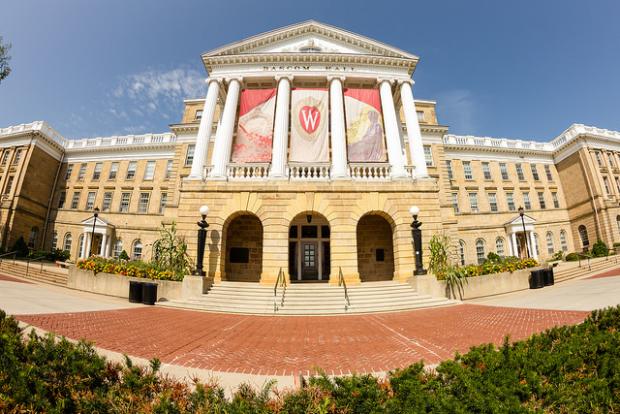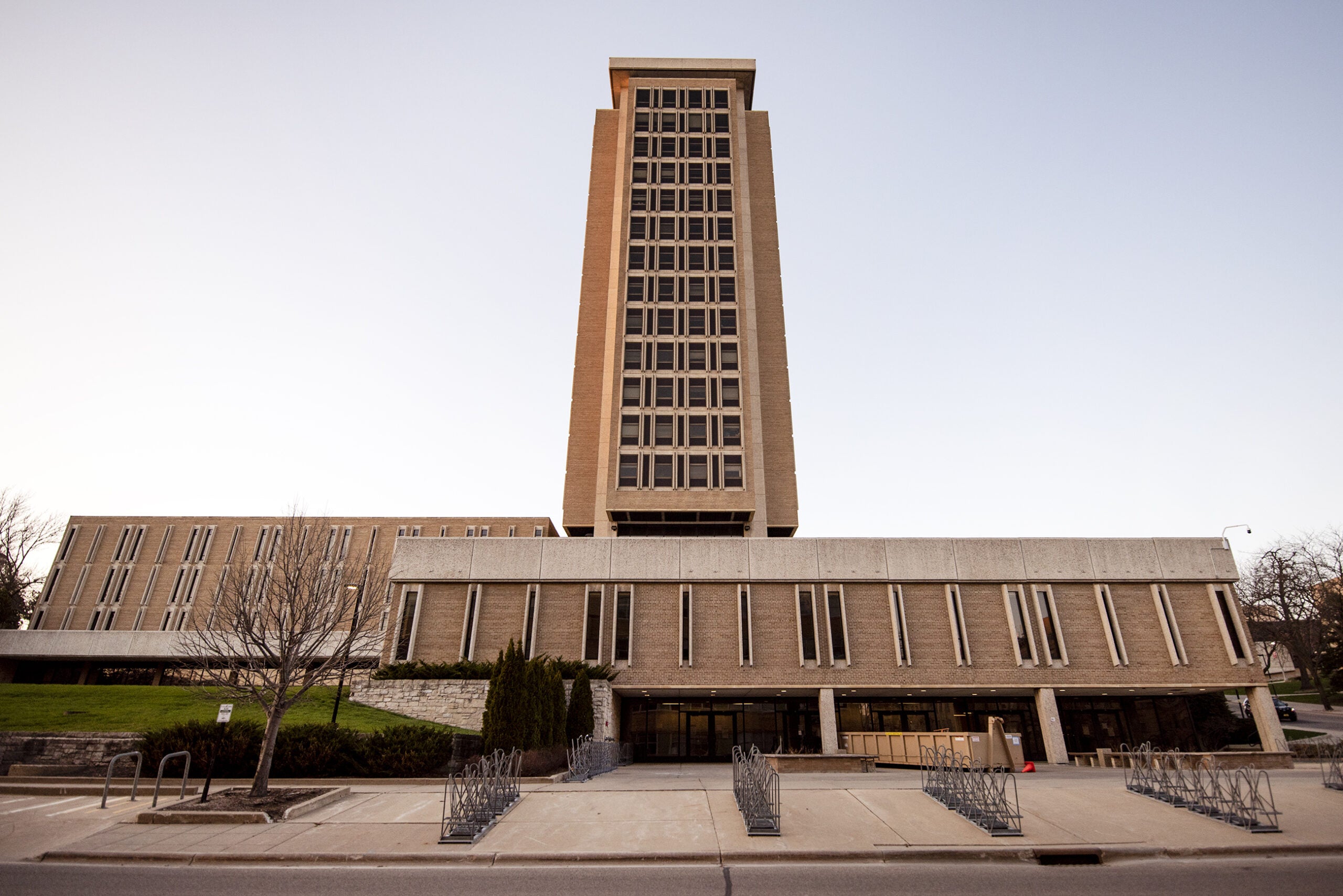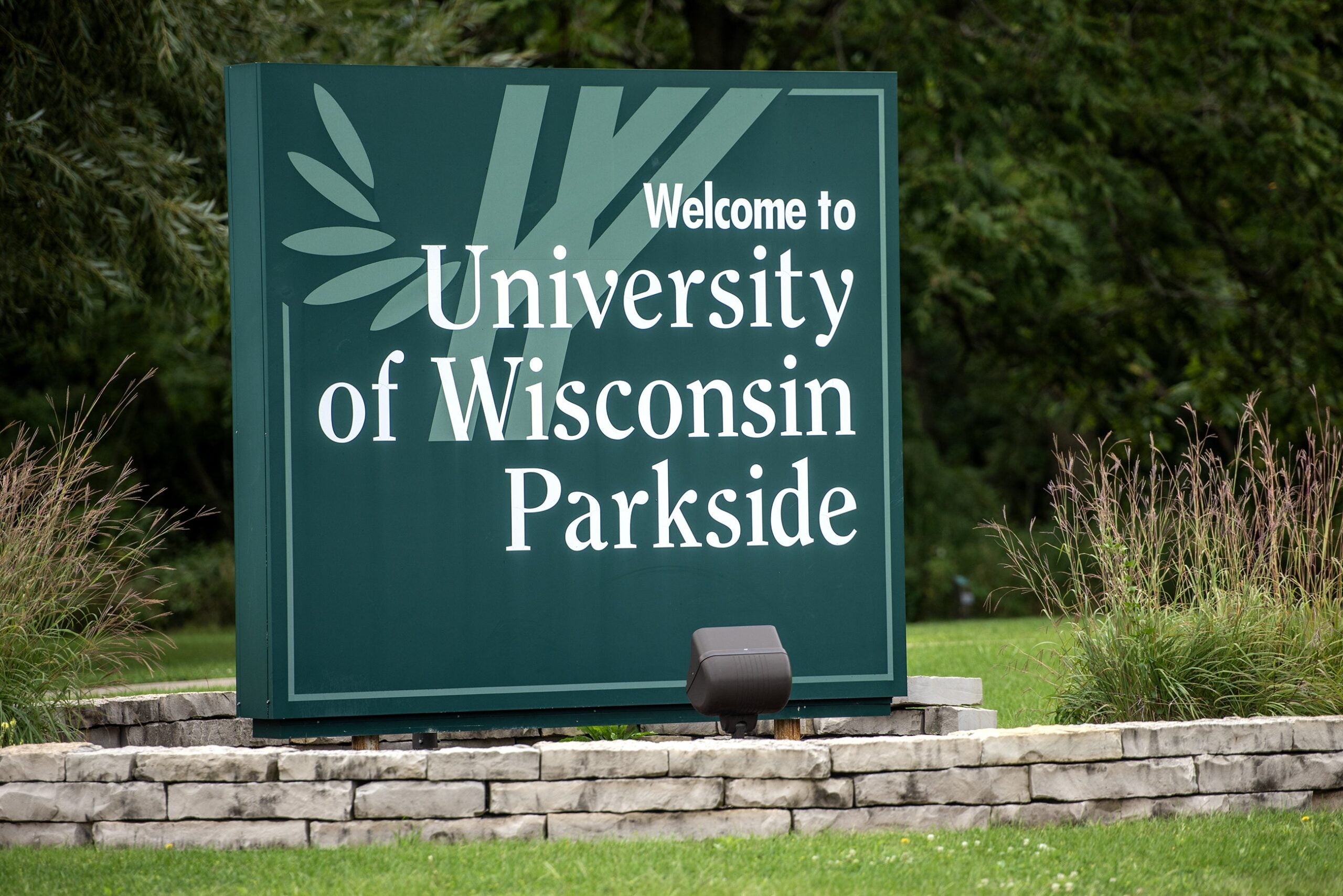The University of Wisconsin Board of Regents are set to consider two policy changes that mimic recent proposals put forth by Republican lawmakers.
If approved, the resolutions would alter how campus and system leadership is picked and open the door to expelling students who repeatedly disrupt freedom of expression.
Regents are holding their October meeting at UW-Stout in Menomonie and will be on campus for the rest of the week. On Thursday, they’ll consider a resolution that would make numerous changes to how university chancellors and University of Wisconsin-System presidents are hired with an aim of streamlining the process and attracting more candidates from the private sector.
News with a little more humanity
WPR’s “Wisconsin Today” newsletter keeps you connected to the state you love without feeling overwhelmed. No paywall. No agenda. No corporate filter.
The resolution would allow the regent president to create a special, ten member committee to find a replacement. Up to half of this committee would be made up of regents, which are mostly political appointees of the governor. The rest would be made up of faculty, staff, administrators and community members. Currently, campus search committees are generally larger.
For example, in 2012 a chancellor search committee at UW-Eau Claire was made up of 21 members from faculty, academic staff, non-academic staff, administrators, students and community representatives. Regent President John Behling ordered a workgroup to come up with a way to streamline and speed up the hiring process. But UW-Regent Tony Evers, who is also the state superintendent of schools and a Democratic candidate running to replace Republican incumbent Gov. Scott Walker, said at a recent event in Madison that he cannot support the proposed changes.
“I’ve been on search committees. They work, they’re kind of slow. OK, speed it up,” said Evers. “The idea of having five Board of Regents members … that seems a little heavy handed in my opinion.”
Chancellor qualifications would also change under the proposed changes. Candidates would no longer be required to have backgrounds in academics, nor would they need masters or doctorate degrees. In a statement Behling said the UW-System will benefit from outside voices in campus leadership roles.
“We have a wonderful group of chancellors and system leaders,” said Behling. “As the responsibilities of university leaders continue to evolve, universities across the country have benefited from being open to hiring individuals from non-academic backgrounds, including the private sector and government. The Board of Regents needs to make sure that our hiring process allows for a diverse and dynamic pool of candidates that reflect the changing dynamics of higher education.”
Evers along with faculty from the state’s universities have questioned whether it makes sense to have people with no background in higher education leading campuses or the UW-System. Evers even went so far as to say it would “lower the stature of, especially, research institutions and all of our institutions.”
Freedom of Expression
On Friday, regents will consider a resolution that would allow chancellors to expel students who continually disrupt others’ academic freedom or their freedom of expression. In short, a student found to have disrupted a free speech event two times would be suspended from the university. A third offense would result in expulsion. To ensure accountability and transparency, chancellors would be required to file an annual report on any free speech disciplinary actions to the Board of Regents.
The regents’ resolution mirrors legislation introduced in April by State Representative Jesse Kremer R-Kewaskum. He and other lawmakers have argued that liberals on campuses across the country are becoming more hostile to conservative speakers. In November former Breitbart News editor Ben Shapiro was interrupted during a sanctioned speech at UW-Madison. Behling said the proposed policy change for the UW-System is a way to address these concerns.
“Campuses across the country are wrestling with the question of appropriate behavior of students,” said Behling. “The University of Wisconsin is a large system and I believe we need consistent learning environments at all of our campuses. Through this policy, we inform students and taxpayers that we can provide a world-class education in an atmosphere where civility, respect and safety is required and expected.”
But Democratic state lawmakers and free speech advocates have voiced concerns that Kremer’s legislation and the regents’ policy changes could actually restrict free speech on campuses.
American Civil Liberties Union of Wisconsin Executive Director Chris Ott said it’s wrong for students to shout down speakers they disagree with, “but at the same time we have some real concerns about these measures which seem to aim to defend the first amendment by cracking down on peoples’ first amendment expression.”
Wisconsin Public Radio, © Copyright 2025, Board of Regents of the University of Wisconsin System and Wisconsin Educational Communications Board.







